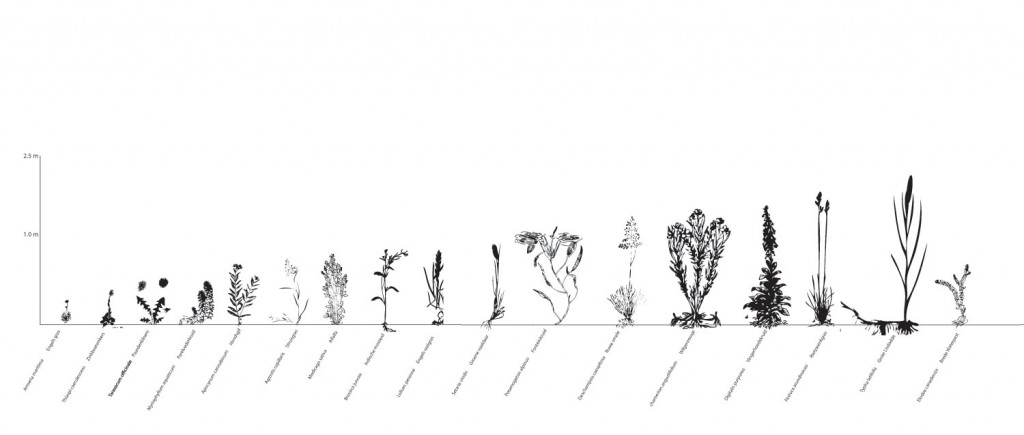
(afb. de Ceuvel)
For a period of ten years, the site of the former shipyards De Ceuvel-Volharding in Amsterdam is home to workplaces, offices, workshops and a café. A winding jetty connects the different units. Under the jetty and between the units, there is a variety of vegetation, creating a biotope for insects, birds and small mammals. The economic crisis put an end to the plans for large-scale development on this terrain. The municipality of Amsterdam therefore put out a tender for ideas on how to use the location for a period of ten years. Contestants had to take into account that the soil of large parts of the terrain is contaminated with heavy metals. In the winning proposal, plants are used to clean the soil during this period. This technique—phytoremediation—uses specially selected plants that remove the metals from the soil and the groundwater. The vegetation is cut and removed for composting or burning. The raised boardwalk was placed to prevent people from coming into contact with the polluted soil, and to prevent them from trampling on the vegetation. In this temporary circular breeding ground, tenants are also experimenting with ways to grow food crops on the clean parts of the site. In an experimental installation, phosphates are extracted from urine and faeces, and the entire terrain now has a closed water system.
-Amsterdam (NL) 2012
-Space&Matter, Delva Landscape Architects, Metabolic, WouterValkenier, Marjolein Smeele, Jeroen Apers Metabolic CS
more info: De Ceuvel
